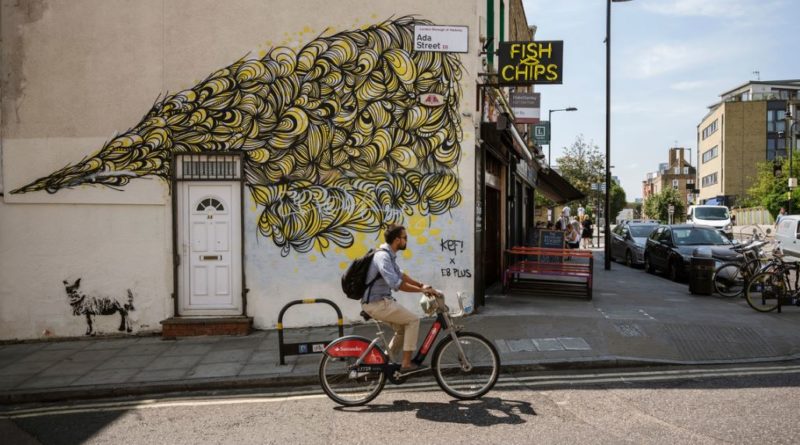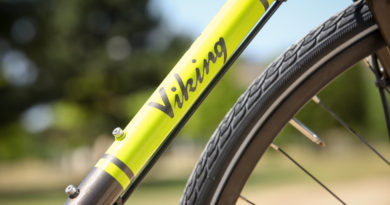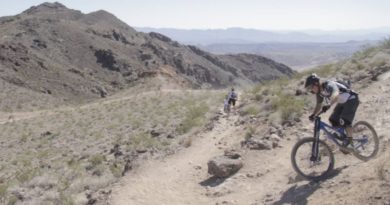50% of journeys by walking or bike “achievable”, says Boardman as Active Travel England gets rolling
Half of all journeys in England could be made by walking and cycling by 2030, says Chris Boardman, new interim head of Active Travel England – but he admits it’s a big challenge that keeps him up at night.
Active Travel England (ATE) is an arms-length body of the Department for Transport, announced this year to deliver on the Government’s Gear Change vision, as part of Boris Johnson’s so-called “golden age of cycling” – which includes the 50% active travel target. Currently cycling is 3% of all trips, and walking 32%.
Speaking to the All Party Parliamentary Group on Walking and Cycling yesterday, Boardman said it was “a monumental time” to finally deliver at scale on active travel. With ATE “in the throes of forming”, and 100 new recruits needed within the next year, Boardman wants one of his legacies to be a more diverse workforce, to include more women and greater ethnic representation.
“It’s a pretty monumental time,” said Boardman. “I think for those of us who’ve been involved in active travel for, well for decades now… we’ve actually got everything that we wanted: we’ve got literally billions of pounds, we have an organisation to deliver, we’ve got an incredible strategy and we’re proud to have an organisation that will deliver it.”
“By 2030 we need 50% of journeys to be made actively. And that’s quite an ambitious target but it is achievable.”
ATE will “hoover up anything to do with active travel”, he said, including ensuring standards are met, being a statutory consultee to major developments, and giving local authorities tools and support to deliver decent quality routes.
Boardman doesn’t consider e-scooters “active travel”, but he sees micromobility as another user of cycle lanes, and an industry for ATE to work alongside.
“Our first focus will be making the safe space and making sure everybody’s got that to get to school shops and workplaces,” said Boardman, with “enablers” such as Bikeability training running alongside.” Walking will deliver a large part of the 50% target, including with short journeys to shops and schools.
Of new recruits, ATE will need engineers to deliver new high-quality infrastructure, which Boardman sees as an opportunity to improve representation in the industry.
“Women are [a minority in] the transport industry; it’s massively underrepresented in terms of ethnicity, and we are about to create an organisation where there are not enough people so we will have to train our own and there is the opportunity to change that.
“It is my intention to proactively have an apprenticeship scheme very quickly, preferably within a year, to actually start training the people that we need and make sure that they do represent the places that we are building and the communities that we’re serving – and that’s pretty bloody exciting actually.” Boardman says he wants this, and the introduction of side road zebra crossings, to be his legacy from the role.
Boardman’s interim head of inspection, Brian Deegan, says investment won’t just go on cycle routes, but improving small links, including dropped kerbs to enable walking trips, and the side road zebra crossings the pair have worked on in Manchester. Deegan wants to “empower” local authorities to deliver better infrastructure, and says he hasn’t turned any councils’ plans down outright, only that some proposals weren’t ready yet.
Boardman hopes this – and publishing a “league table” celebrating the best local authorities – will encourage healthy competition, as only those with decent plans will receive funds. “Nobody is going to be forced to do anything. They just can’t do it badly anymore,” he said. Boardman wants local regions to get behind big visions for their future, as Greater Manchester did with the Bee Network.
“It’s internal communication, and also external with the public to show them not to talk about stats and evidence that we’ve got mountains of, but to actually show people for the first time that we’ve got something that makes nicer places to live, that this is people like them doing normal things, just less of it with cars,” he said.
He points out there are 30 different government policies and strategies active travel is embedded in, including Bus Back Better. He says for its £2bn investment, England will get £12bn of value in returns on the likes of health, air quality and decongestion.
When asked by an audience member what keeps him awake at night Boardman said: “We’ve been given an opportunity. The clock is ticking, that we have to demonstrate that we’re effective quickly. There is so much to do to get this organisation going; there’s so much technical stuff and strategic relationships that have to be built behind the scenes, that I’m quite daunted by the responsibility. And that’s what it feels like. What do they call it, the curse of caring?
“This is more than transport; the people who come and work here don’t do this for the money, they do it because they believe it’s going to make a better place to live. And we sense that this is an opportunity never had before, and it’s on us to make it work.
“So pretty much everything keeps me awake at night at the moment and probably for good reason. I think we’re all finding it really exciting, really tiring and what an opportunity to actually go and change a country. It’s not many people can say that they’ve been given the keys to that – so I intend to make the most of it”.
The video stream of the event in full is below:



